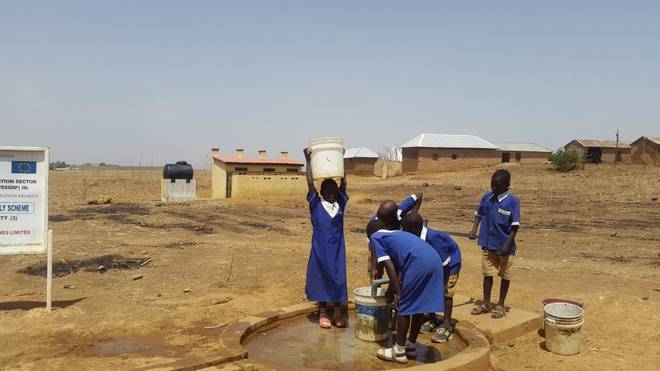
Nigeria may not meet her 2030 Sustainable Development Goal six (SGD6) of ensuring availability and sustainable management of water and sanitation for all if more budgetary allocation is not given to water supply, the United Nation Children’s Fund (UNICEF), has said.
As Nigeria joined the rest of the world in commemorating the 2018 World Water Day celebrated every 22nd of March with this year theme, Nature for Water, UNICEF chief of Water Sanitation and Hygiene (WASH), Zaid Jurji at a dialogue disclosed that the World Bank has advised Nigeria to triple her WASH budgetary allocation to 1.7 percent of the current one to be able to meet the SDG target by 2030.
“Nigeria is expected to meet her WASH target by 2030 which is 18 years from now. If we continue the way we are moving, only 72 percent will be covered by the targeted date.”
Jurji in collaboration with the recent Multiple Indicator Cluster Survey (MICS5) conducted by the National Bureau of Statistics in 2016/17 revealed that about 40 percent of households do not have access to clean water sources.
He added that only two-third of the entire population of Nigerians had access to potable water while adding that most of the water consumed by Nigerians is from sources contaminated either by faeces, lack of proper hygiene practice, contaminated water sources and containers.
Jurji who called on the Federal Government to make water and sanitation a national priority, maintained that the rate of water borne diseases in the country would be reduced to the barest minimum if not totally eradicated, if the citizenry had access to more potable water free of contaminants. “Only two-third of the population has access to improved water, but that doesn’t necessarily mean that the water they use at the household level is suitable for drinking.
“Water travels from its destination to sources and could become contaminated due to availability if external factors like availability of latrine or the fact that people defecate around the water source. Also, the trip the water has to take from the source to the household level before it is being used could be contaminated by hands, contaminated by storage tank or contaminated by containers.”
In a statement to mark the day, UNICEF Communications Specialist, Eva Hinds said, improving water and sanitation services as well as basic hygiene practices in Nigeria, calls for a strong commitment from all partners, the government, the civil society, the private sector and communities.
“For Nigeria to achieve the global goal of providing access to safe water for every citizen by 2030, it needs to make water, together with sanitation and hygiene, a national priority. This goal is closely linked with three key results for the country-good health, environment sustainability and economic prosperity.




